Countries are not created equal. Some are poor and others, rich. The wealthiest of 195 nations have more than ample resources to gain power.
From a social science perspective, the definition of power reads, “the ability to influence the behavior of people.” To a broader extent, a powerful country may have indirect control over other countries across the globe.
In essence, a nation has special and abundant resources to become one of the most powerful countries in the world. Most often, you hear or read about the world’s powerful countries in news headlines. They influence policymakers and global economic trends.
The rest of the world keeps track of its foreign policies and military funding. They frequently offer aid and support to poor or developing countries when the need arises.
Best Countries In The World 2025
The BAV Group, a unit of global marketing company VMLY&R, in partnership with The Wharton School of the University of Pennsylvania have released the world’s best countries rankings in 2025.
The results of the best countries rankings are based on a study that surveyed over 17,000 people from four different regions. The survey assessed their perceptions of 78 countries using 76 different metrics.
The 2025 Best Countries ranking includes power as a sub-ranking, which has 8 percent weight from the overall score. The power sub-ranking, derived from weighted average scores, has five specific attributes that pertain to a country’s power. These factors are the country’s leader, economic influence, political influence, strength in international alliances, and military power.
The World’s Most Powerful Countries in 2025
Contents
The 2025 rankings show a slight change in the list of the top 10 most powerful countries in the world. However, there are some movements in positions, except the United States that still occupies the top spot.
The Land of Milk and Honey remains to be the most powerful country for being the world’s largest economy with a GDP of $21.4 trillion in 2020. The US also has the biggest military budget, with more than $732 billion expenditure on military hardware and personnel in 2019.
China and Russia have shuffled positions in the 2025 most powerful countries’ sub-rankings. China now occupies second place while Russia falls to third place in terms of military spending.
Germany and the United Kingdom follow the top three countries, keeping the fourth and fifth spots respectively. These two countries have large economies and donate a tremendous amount of international aid. Meanwhile, Japan moves up to no. 6, overtaking France, which now sits at no. 7 this year.
South Korea and Saudi Arabia each ranked one spot higher in 2025, occupying the eighth place and ninth place respectively.
South Korea and Saudi Arabia each moved up one position this year, to No. 8 and No. 9 respectively. From the 11th spot, The United Arab Emirates moved back up to No. 10 to round out the 2025 most powerful countries in the world. Israel land fell three spots lower, from No. 8 to No. 11 this year.
The other four counties in honorable mentions include Canada, India, Turkey, and Italy, which sit at the 12th, 13th, 14th, and 15th places respectively.
The World’s Least Powerful Countries 2025
For comparison, nations viewed as less powerful are the ones that have small to medium economies. The least powerful country in the world is Estonia, a small country located in Northern Europe. The country used to be a part of the Soviet Union.
Estonia’s neighboring countries Latvia and Lithuania are also in the bottom five. The other two include Slovenia, located in South-Eastern Europe, and Slovakia, found in Central Europe.
Now, let us get into the detailed profile of each of the top 10 most powerful countries in the world in 2025.
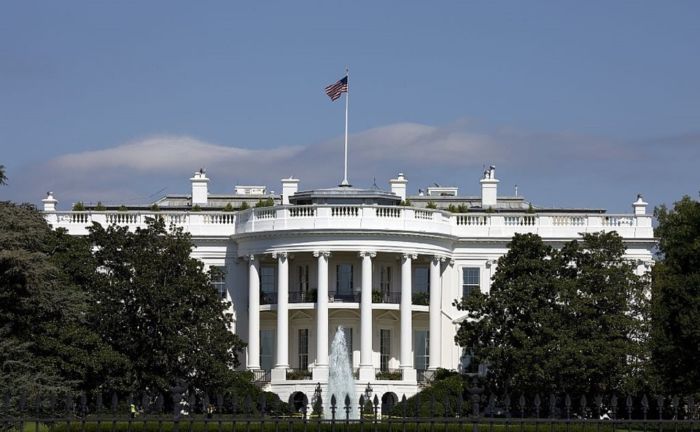
United States
After the rebel leaders had won the Revolutionary War against the British Colony, they declared independence in 1776. The United States was then born as a new country. In 1783, it was founded as a constitutional republic that is made up of 50 states.
To date, the United States has a population of 328 million people. The North American country’s economy is the largest in the world based on its gross domestic product (GDP) of $21.4 trillion. The GDP Per Capita amounts to $65,280.
Known for its technological prowess, the country’s major exports include computers, electrical machinery, vehicles, and advanced military equipment. It also exports food, chemical products, livestock, and more.
In addition, it has the largest coal reserves in the world. The country’s pop culture also heavily influences people from most parts of the world through music, movies, and TV shows.
The United States displays its dominance in military power. Back in the day, the country already survived a civil war in the 1800s that almost divided the nation in two. In the 1900s, the United States and its allies won the two world wars.
The whole world witnessed a terrorist attack in New York on Sept. 11, 2001, which claimed thousands of lives of Americans in just one day. It has since become fiercer in stopping terrorism worldwide and launched the War on Terror.
The United States acts as one of the world leaders that handle international issues. In fact, the country was behind the founding of world organizations, such as the United Nations and the World Bank.
The U.S. As A Melting Pot
The country is known as a melting pot, which has attracted millions of immigrants from Europe, Asia, and other countries. This explains its people’s rich heritage, widely diverse culture, and multi-racial backgrounds.
The United States is the birthplace of legendary Louis Armstrong, an African-American artist. Armstrong was acclaimed as one of the most influential figures in the history of jazz.
The most powerful nation in the world also has the world’s best universities, e.g. the Massachusetts Institute of Technology. These also include Ivy League schools Harvard University, Yale, Princeton, and the like.
Although the United States is arguably the world’s most powerful nation, it is confronted with plenty of domestic concerns. To cite a few, such challenges involve income inequality, racial tensions, national security, and huge debt used to finance wars.
The United States is a member of international organizations, i.e. G20, APEC, and Council of Europe. It is also a member country of the World Trade Organization and the United Nations Security Council.
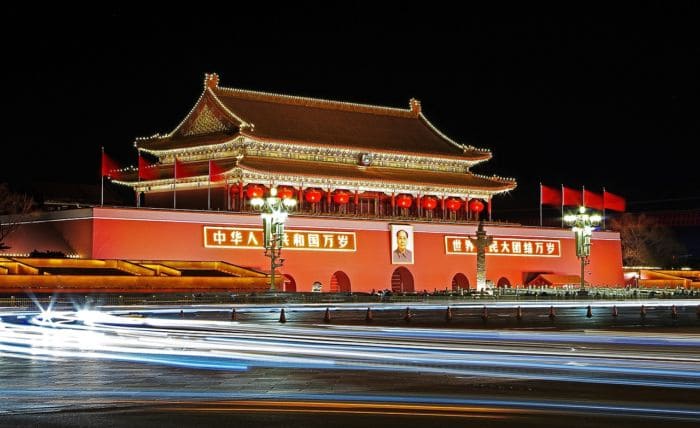
China
China still ranks third in the list of top 10 most powerful countries in the world in 2025. The country is known to have the world’s longest civilization, dating back to 221 BC, more than 40 centuries ago.
Based on the country’s history, a long line of ancient Chinese dynasties had ruled China up until 1912. Since the late 1940s, the Communist Party has governed the country, founded as the People’s Republic of China.
Home to more than 1.4 billion people to date, China becomes the most populated country in the world. The country has dozens of ethnic groups, although, over 90 percent of the population is Han Chinese. There are about 300 spoken languages throughout China, but Mandarin Chinese is the country’s official national language.
Furthermore, China has a total GDP of $14.3 trillion with a GDP per Capita of $10,217. It is the second-largest country in the world in terms of landmass, next to Russia. It also ranks the world’s second-largest economy, trailing behind the United States of America.
The country saw major reforms happening in 1978 under China’s former leader Deng Xiaoping. Since then, the Asian country has seen exponential economic growth within the last 30 years.
China’s Economy
Now, it has gained extensive economic influence worldwide as a global leader in exports. “Made in China” products have flooded international markets today. Economists project China will most possibly overtake the U.S. economy at some point.
China has remarkably improved the economic condition of hundreds of millions of people. Still, it remains a developing country, where many continue to live under the poverty line.
In terms of military, China is known for having the largest military in the world. The country’s naval forces consist of hundreds of ships and aircraft, with more than 200 active military men.
The county holds power by having nuclear weapons. China is also one of the countries that spend the largest military in the world. It has strong ties with another powerful country, Russia.
China has become a member of the UN Security Council since 1971 and other international organizations, which include the World Trade Organization and Asia-Pacific Economic Cooperation.
The nation’s rapid economic growth, however, has spurred domestic challenges. Such issues include income inequality, a significant increase in population, and even air pollution.
According to the International Energy Agency, China has the highest carbon dioxide emissions. But the country has also put major investments in renewable energy.
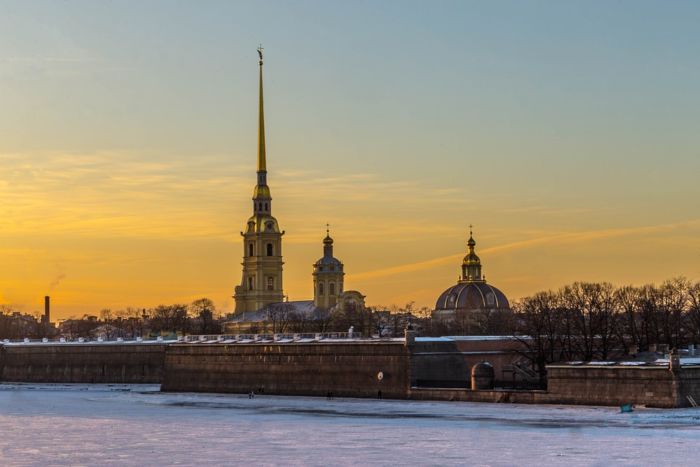
Russia
Russia falls one notch lower in 2025, from the second to no. 3 spot of the most powerful countries in the world. This nation exists more than a thousand years ago under an authoritarian government.
It used to be the largest republic of the Soviet Union. Russia only became an independent country after the disintegration of the Soviet Union in 1991.
Russia is the world’s largest nation bordering 14 different countries of both European and Asian continents. It has a population of nearly 144 million people.
Currently, it has a GDP of $1.69 trillion with a GDP per Capita of $11,498. Its capital, Moscow, has 74 billionaires, a number that is greater than other cities in the world have.
120 ethnic groups are residing in Russia. This explains why there are more than 100 spoken languages throughout the country.
Russia has also made major contributions to science and arts. Russian were the first ever to perform a spacewalk and launch an artificial satellite into space.
Moreover, Russia has vastly rich natural resources. It exports natural gas, timber, metals, and oil, making it one of the largest economies in the world.
Russia’s Economy
On top of that, Russia is the second-largest exporter of military weaponry, next to the United States. So, what makes Russia unquestionably powerful is the fact that it has the most number of nuclear weapons in the world, estimated at 8,400.
The country saw a dramatic economic upturn since the early 21st century thanks to political stability and higher demand for its domestic products. To date, Russia is considered a cosmic economic force in the world.
Major industries of the country include agriculture, forestry, fishing, and manufacturing. On the other hand, it imports food products, pharmaceuticals, and textiles.
Russia is a member of international organizations such as the G20, APEC, and Council of Europe. It is also a member of the World Trade Organization and the United Nations Security Council.
However, Russia faces criticisms for its authoritative form of government and violations of human rights. The United States has also accused Russia of interfering with the 2016 U.S. presidential election.
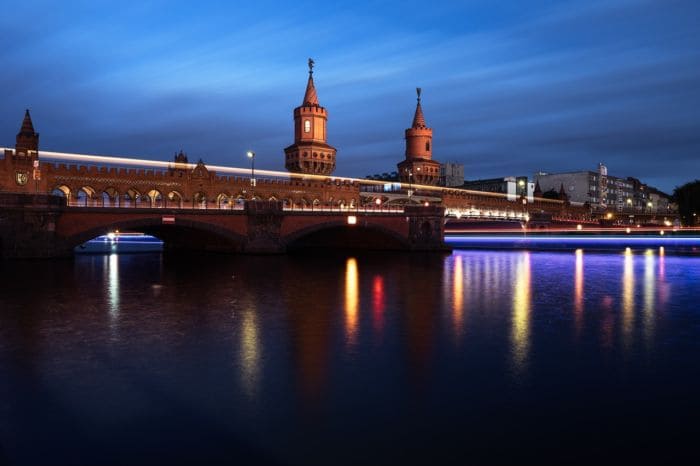
Germany
Germany ranks as the fourth most powerful country in the world. It is situated in western-central Europe, bordering nine other nations. The country’s form of government is a federal parliamentary constitutional republic.
The nation’s history is riddled with war, rebellion, and violence. The country’s defeats in World War I and II left itself divided into East and West Germany by the famous Berlin Wall. It was not only until 1990 upon the collapse of the Berlin Wall and the country has been unified.
Since then, the German people have started building the country in unity and peace. At present, Germany has become a major political-economic force in the European region.
Germany has the biggest population among the member countries of the European Union. Currently, it has 83.1 million people. Berlin, the capital city, is home to 3.3 million people.
Germany’s Economy
In the economic aspect, Germany has one of the largest economies in the world with a GDP of $3.86 trillion and a GDP per capita of 46,468 in 2020. Since the unification, the international market has strongly felt the country’s presence, exports, and imports wise.
The central European country is fifth with the largest purchasing power in the world. It ranks the second largest exporter of goods and the third-largest importer of goods in the world.
As it employs open-market capitalism, it guarantees certain social services. One of its key economic drivers in manufacturing. It is known for being one of the world’s top manufacturers of cars, boats, and electronics.
The country’s other industries include telecommunications, health care, tourism, and agriculture are top contributors to its economy. Also, the country’s land is abundant in natural resources, such as copper, nickel, uranium, coal, and natural gas.
German people have a high standard of living. Every German resident benefits from a universal health care system, as well as a comprehensive social security scheme.
Despite that Germany has highly skilled and affluent workers, the country is facing a domestic challenge: an aging population. Because of its open-door policy, it is also one of the world’s top destinations for immigrants. This open-door policy, however, spurs concerns over crimes within its borders.
Culture-wise, a number of the world’s famous figures in science and arts come from Germany. The country is the birthplace of Ludwig van Beethoven and the genius Albert Einstein. There are about 100 Germans who received a Nobel Prize.
Germany is also a member country of major international organizations, namely the United Nations, the European Union, G20, NATO, and APEC.
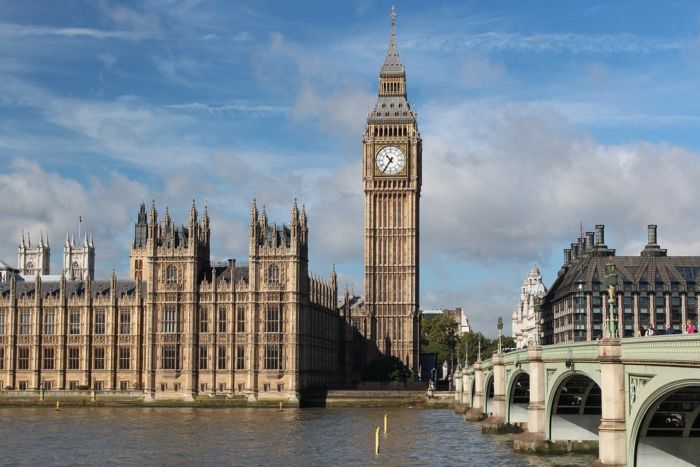
United Kingdom
The United Kingdom is the fifth most powerful country in the world. Found in the northwest part of Europe, the UK is composed of England, Scotland, Wales, and the northern part of Ireland.
This nation is home to 66.8 million people. It has a total GDP of $2.83 trillion, with a GDP per Capita of $42,354.
The country’s economic and political influence in the international community dates back to the British Empire built during the colonial era. The colonization lasted through the early 20th century until World War II broke.
It was in the 17th century when the UK was first established as a constitutional monarchy and parliamentary democracy. The national government forms three branches: executive, legislative, and judicial. The prime minister occupies the highest position in the government. He then appoints his cabinet members.
London, United Kingdom’s capital city, is one of the top tourist destinations in the world. Major drivers of the country’s economic growth include tourism and banking.
Despite that there is a decline in manufacturing in automobile and aerospace products since the industrial revolution, this industry remains a major contributor to the U.K.’s economy.
The United Kingdom, just like France, has nuclear weapons. The country also has the strongest naval forces in the world. Not to mention, it has one of the top foreign intelligence agencies, the Secret Intelligence Service, or what is popularly known as the MI6.
The country has also extended its global influence in arts and sciences. Some of its brilliant scientists discovered gravity and hydrogen, as well as produced medicines such as penicillin.
The U.K. is also the birthplace of one of the greatest writers in the history of literature, William Shakespeare. Other famous figures include cosmologist Stephen Hawking and computer wizard Tim Berners-Lee, the man that invented the World Wide Web.
The nation has also established some of the world’s best universities, including Oxford, Cambridge, and Imperial College London.
U.K.’s Domestic Challenges
The U.K. has been a lucrative destination for immigrants since time immemorial. Toward the second half of the 20th century, immigrants started coming from South Asia, Africa, and the Caribbean apart from Central and Eastern Europe. At present times, the U.K. and other European countries face immigration issues.
Also, the deadline for the United Kingdom to exit the European Union is happening later this month. The Brexit vote draws some doubts in regard to the EU, including its policies.
Like other powerful nations on this list, the UK is a member nation of the UN Security Council, the WTO, NATO, the G20, and the World Bank.
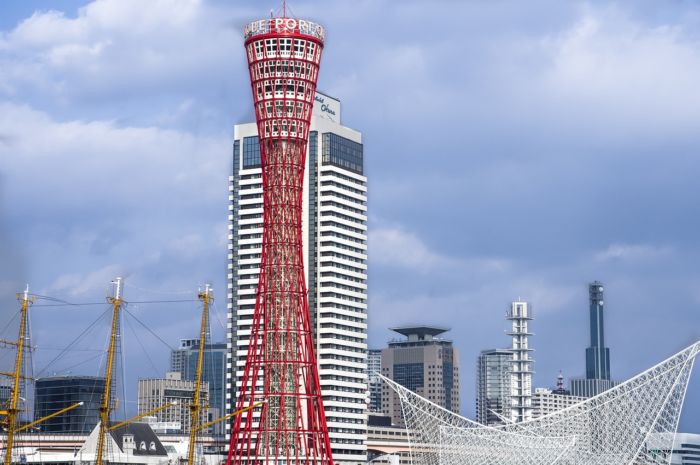
Japan
Japan is the second Asian country that joins the list of the most powerful countries in the world in 2025. It sits at seventh place.
Known as the Land of the Rising Sun, this country is an archipelagic region. The nation consists of more than 6,800 islands and is home to more than 126 million people. Around 30 million Japanese live in Tokyo, the capital city. Tokyo is known for being one of the world’s most expensive cities to live in.
This East Asian nation’s power is concretely defined by having the highest literacy rate in the world, which is almost 100 percent. The country is also one of the most technologically advanced nations in the world. It is rich with a total GDP of $5.06 trillion and its GDP per Capita is around $40,113.
To date, Japan’s history dates back to the late fourth century B.C. The Japanese civilization thrived in the eighth to 12th centuries and witnessed military rule through the succeeding centuries.
In the 1900s, the country made an ambitious attempt to expand its territories by conquering other countries. However, it suffered great defeat during the Second World War.
At present times, Japan has a parliamentary form of government, with a constitutional monarchy. It means, the country’s emperor keeps his title that symbolizes national unity. However, elected government officials have the power to make decisions.
In terms of wealth and resources, Japan follows a market economy. It has the third-largest in the world despite the catastrophic disaster that struck in 2011.
Although the strong earthquake and the tsunami disrupted the manufacturing industry, its economy has seen better days since. Right now, Japan is one of the world’s biggest producers of steel, electronic products, and automobiles. Its unemployment rate is at less than 4 percent.
Culture-wise, Japan is world-famous for its classical arts, tea ceremonies, calligraphy, as well as flower arrangements. It is also known for its sculpture, poetry such as haiku, and fascinating zen gardens.
As for its tourism, Japan holds more than 12 World Heritage sites. Sushi, which is popular in the culinary world, originated in this country. It has two famous sports: baseball and Sumo wrestling. Sumo wrestling is a traditional sport, which started in the 8th century.
Japan’s Domestic Challenges
Japan, as powerful as a country can be, however, faces a major domestic challenge. According to experts, the nation’s population will see a steep decline through 2060 due to a decline in birth rates. At this time, Japan has the world’s oldest population, with more than 50,000 Japanese citizens exceeding the age of 100.
North Korea’s nuclear missile program has also caused serious concerns around the East Asian region. Japanese leaders call for the amendments of the nations’ post-war pacifist constitution.
Japan is as well a member of international organizations, such as the United Nations, the Asian Development Bank, and the World Bank.
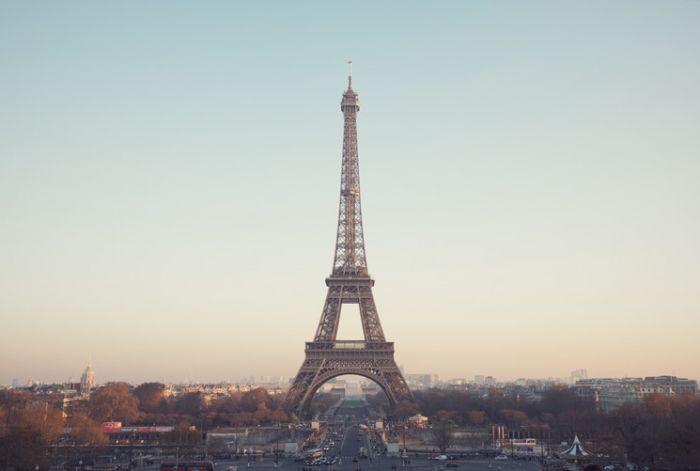
France
The sixth most powerful country in the world is among the world’s oldest nations and the largest in the European Union. France measures nearly one-fifth of the total area of the EU.
France is known to be the richest country in Europe. With a total GDP of $2.72 million and a GDP per Capita of $40,380, France is also the world’s fourth wealthiest nation.
The country had come a long way before it became a unitary semi-presidential constitutional republic. France was first a kingdom in the medieval period, then an empire until it evolved into the republic that it is today. France has a president and a prime minister at the same time, having a parliament, a senate, and a national assembly.
The country’s influence at present times spans beyond its borders and across the world in various aspects: political, economic, cultural, as well as science, and arts.
France is known for being the largest user of nuclear power in the world. The country is utilizing nuclear power for almost 80 percent of its electricity. It is also one of the top exporters of weapons in the world.
As a rich country, French people have an extremely high standard of living. The federal government backs social services, such as education, health care, and retirement plans.
France’s Economy
Its economy is a mix of private and state enterprises. 2.5 million private businesses are operating in the country. The number of state-owned companies, meanwhile, is decreasing.
This European nation boasts acres of productive lands, which is why it is a top exporter of agricultural products, ranking third in the world. Its wine industry thrives greatly and hugely contributes to the country’s economic growth. It exports Bordeaux wines and champagnes to most parts of the globe.
Tourism also exponentially boosts France’s economy. The country gets visited by nearly 80 million people annually, making it one of the world’s top tourist destinations.
French culture has a rich heritage. France takes pride in fine arts, dance, films, and music dating dates back to the middle ages. The country is recognized for its collection of the best artworks in the world for tourists to behold. Apart from these, it is known for its delectable cuisine and world-class wine.
Similar to other large countries, however, France also faces various domestic challenges such as how to combat terrorism. The country had succumbed to the fangs of terrorism, first on a satirical newspaper earlier in 2015. Then, there was the Paris attack in November that year, killing 130 people.
In addition, the country also sees high unemployment among its young adults amid slower economic growth. As a countermeasure, the French government has intensified its effort to impose reforms on the country’s labor market.
France is one of the founding members of the United Nations and secures a seat on the U.N. Security Council. This powerful country is a member of the World Trade Organization, the Organization for Economic Cooperation and Development, as well as NATO.
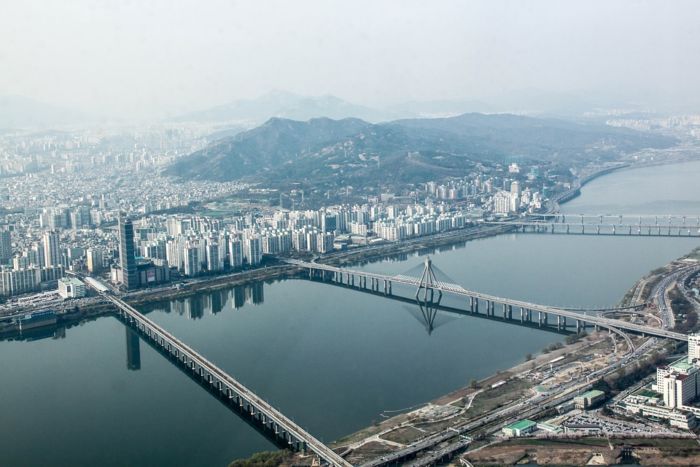
South Korea
South Korea is the newest country to join the ranks of the most powerful countries in the world in 2025. Located in East Asia, the country’s official name is the Republic of Korea.
The country had endured a long history of the conflict that wooed the Korean Peninsula. It attained liberation from Japan in 1945 after World War II. However, North Korea’s communist forces invaded a few years hence.
The United Nations made efforts to end the war between the two countries that lasted for three years. The UN aided South Korea on its road to democracy. Until now, the two countries in the region have remained divided.
Decades after it once again gained independence, South Korea was subjected to authoritarian rule. To date, it runs as a unitary presidential constitutional republic government, where there are a president and a prime minister.
In 1987, the country held its first free national elections to elect a president. A corruption scandal involving Park Geun-hye, the country’s first female president, broke and shook the country in 2016. She was ousted from office in 2017.
South Korea is the birthplace of Ban Ki-Moon, the former United Nations secretary-general. Forbes has included Ki-Moon in its list of the most powerful men in the world.
South Korea has a current population of more than 51 million people. It ranks 27th most populated country in the world. Seoul, the capital city, has the largest population.
The East Asian nation has become one of the wealthiest countries in the world with a GDP of $1.5 trillion and a GDP per Capita of $39,548.
South Korea’s Economy
South Korea has a technologically advanced, service-based economy. It has cutting-edge technology and has the fastest internet speeds in the world on average.
Its main industries include electronics, telecommunications, cars, and steel. Tech giant Samsung is headquartered in Seoul, as well as automakers Hyundai and Kia. It also produces agricultural products such as rice, barley, and root crops. Agriculture, however, only accounts for 2 percent of the country’s GDP.
Since the 60s, South Korea has shown exponential economic growth and poverty reduction. Now, the country is the world’s 11 largest economy and seventh-largest exporter.
Similar to Japan, South Korea also faces the challenge of an aging population. The government does provide universal healthcare and mandatory education through middle school. The country’s enrollment rates are at 100 percent.
South Korea is a member of the United Nations, the G20, the Association of Southeast Asian Nations Regional Forum, and the World Trade Organization.
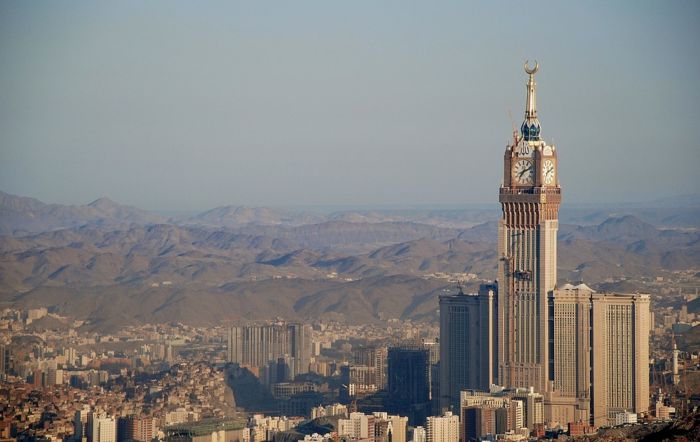
Saudi Arabia
Saudi Arabia sits at ninth place in this year’s most powerful countries in the world. The giant country that lies in the Arabian Peninsula has vast lands and wealth.
Located in the Western part of Asia, Saudi Arabia spans about 830,000 square miles, making it the fifth-largest in the continent. It is also the second-largest Arab country in the world, next to Algeria.
The Kingdom of Saudi Arabia is home to 34.3 million people. About 50 percent of its population is below 24 years of age.
This powerful Arab country used to be the heart of the cradle of the civilization, the Fertile Crescent. The arc-shaped region had seen Agricultural and technological development, which include the use of irrigation as well as the invention of writing, glass, and the like.
What makes Saudi Arabia stand out from the rest of the nations is its arid climate and deserts. The country’s deserts were discovered to contain overflowing oil reserves. It has about 22 percent of the world’s oil deposits.
Oil is one of the limited commodities that keep the world turning. Since then, Saudi has become a top exporter of oil, hence, its rapid economic growth.
Today, Saudi Arabia has a GDP of $793 billion, with a GDP per Capita of $23,140. Nearly half of its GDP comes from oil.
On top of its oil reserves, the country also has gas reserves, the sixth-largest in the world. Saudi has also ventured into manufacturing concrete, steel, auto parts, and construction materials.
At present, Saudi Arabia is building the Jeddah Tower, formerly known as the Kingdom Tower. The unprecedented 3,280-feet or 1,000-meter-tall building is expected to open in 2020. By then, the Jeddah Tower will knock Dubai’s skyscraper, Burj Khalifa, off its throne as the world’s tallest building.
Saudi’s form of government is a Unitary Islamic absolute monarchy. There is a king, the crown prince, and the deputy crown prince. The king of the Islamic State is a direct descendant of the kingdom’s 1932 founder. His official title is “Custodian of the Two Holy Mosques” and has assistance from 12 appointed ministers.
The people living in the country share a rich culture and deep heritage. Also, they are more committed to their religion. The country has four World Heritage Sites.
The Islamic kingdom receives millions of Muslims from various parts of the globe to take part in a pilgrimage to Mecca every year. They commonly believe that prophet Mohammed was born in Mecca, the cradle of Islam.
Saudi Arabia’s Domestic Challenges
Saudi Arabia also deals with domestic challenges, as well as ongoing threats from nearby countries. Currently, it builds a fence along its border due to the conflict in Yemen. The wall also helps restrain ISIS members from infiltrating the country.
The growing tension between Saudi Arabia and Iran waves across the region. The country fights an internal war, too, against extremist groups and protesters who demand reform. Still, the kingdom limits freedom of expression, uses torture on its prisoners, and does public executions.
It is extremely wealthy in the supply of oil. However, the Islamic state also looks for other means to reduce its dependency on oil.
The country now implements its newest policy known as Saudization. Aimed at addressing high unemployment rates, the ministry of labor mandates a certain level of companies’ workforce is comprised of Saudi nationals.
Saudi Arabia is a founding member of OPEC. As the newest member of the World Trade Organization, the country has allowed itself to welcome foreign investment.
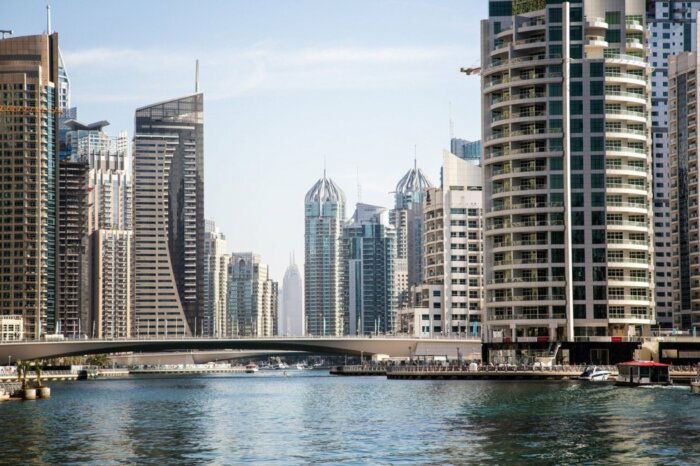
United Arab Emirates
The United Arab Emirates once again graces the list of the top 10 most powerful countries in the world this year. UAE gained back its position in 10th place after it fell to no. 11 in the previous ranking.
With Abu Dhabi as its national capital, the UAE is comprised of emirates on the southeast end of the Arabian Peninsula. The emirates known as the Trucial States in the 19th century emerged after a chain of agreements with Great Britain. Six of these states united to form the UAE in 1971 while the seventh emirate joined the federation in 1972.
In terms of land area, the country spans 83,600 square kilometers with a total population of 9,770,526. Sandwiched between Saudi Arabia and Oman, the country’s natural landscape includes wetlands, waterless mountains, and rocky deserts. Its coastlines extend along Oman Gulf and the Persian Gulf.
Despite that the UAE stays conservative at heart, it’s known as one of the most liberal countries in the Middle East. Its constitution allows freedom of religion. While the country is composed of a federation of monarchies, its legal system is a combination of Islamic and civil law.
UAE Economy
On an economic aspect, the United Arab Emirates has a GDP of $421 billion. The CIA’s World Factbook cites that the country’s GDP per capita of $69,958 is on par with those of the Western European countries.
On top of that, the UAE is named as the World Economic Forum’s most competitive economy in the Arab world. Its two largest cities Dubai and Abu Dhabi attract millions of tourists annually.
Dubai which serves as the country’s regional business hub is world-famous for its lustrous skyscrapers. Also, it is the home to the tallest building in the world known as the Burj Khalifa. Abu Dhabi, on the other hand, is the seat of the Federal National Council.
Furthermore, the UAE is a member of the United Nations, OPEC, and the World Trade Organization.



